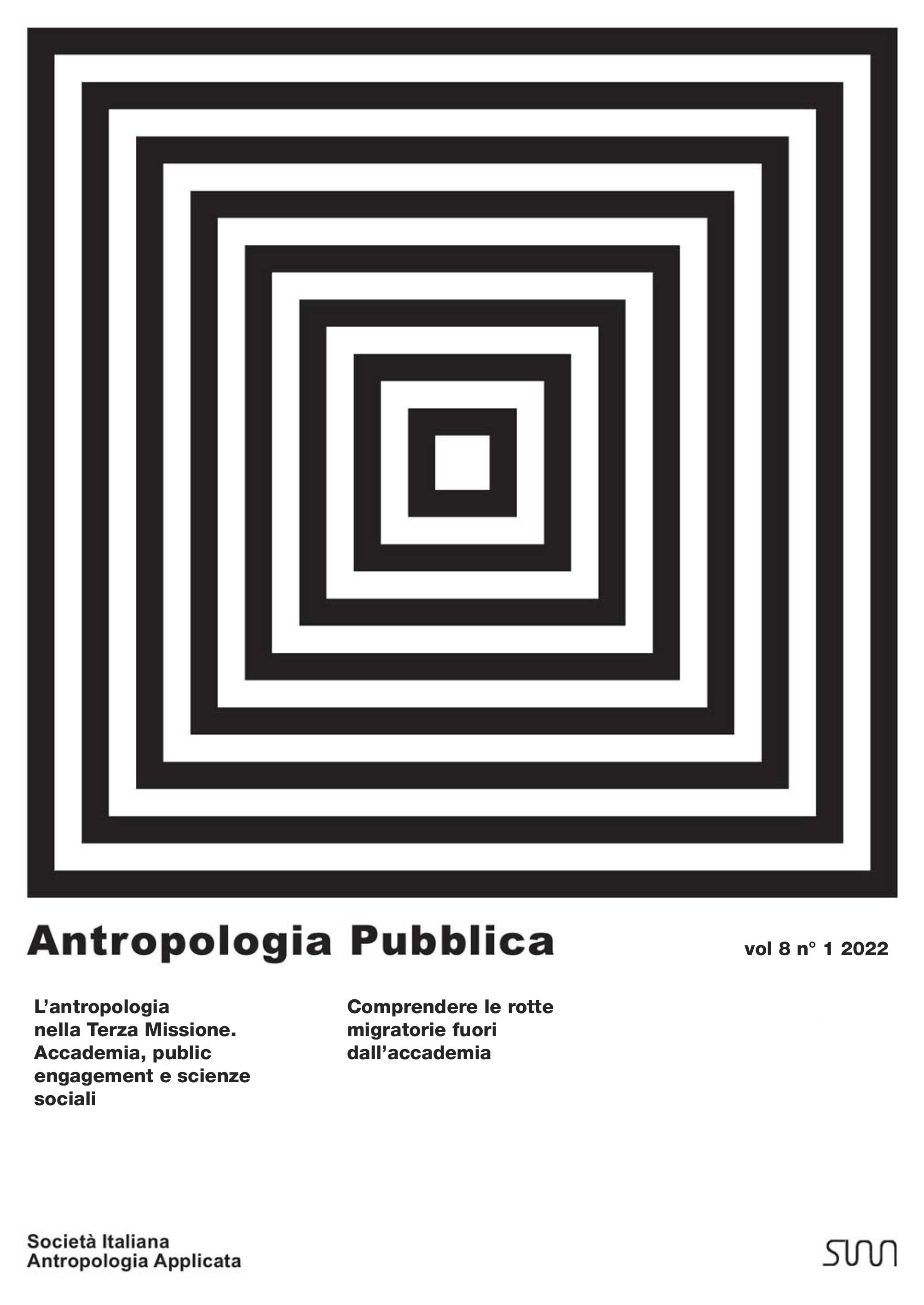Diamo rifugio ai talenti Nuove forme di inclusione e internazionalizzazione attraverso l’Università di Pavia
DOI:
https://doi.org/10.1473/anpub.v8i1.255Parole chiave:
Third Mission; Public Engagement; Engaged Scholarship; Refugees; Inclusion.Abstract
In 2015, the so-called “European refugee crisis” paved the way to inclusive initiatives for refugees in many European universities. Such initiatives encouraged studies on the role played by the university in designing and implementing inclusive policies at different levels. Since the 2015-2016 academic year, the University of Pavia has been enrolling refugees in its degree courses through a dedicated project: Diamo rifugio ai talenti. This experience came to be known as “Modello Pavia”, which is characterised by the involvement of public and private actors, and for being a harbinger of further initiatives. The authors, through their participant observation in the project and because of their expertise in socio-anthropological research, propose some considerations on how social sciences may contribute to the university’s public engagement and to carry our engaged scholarship in the Third Mission. The article aims at underlining three realms in which social sciences can be a resource for designing and implementing inclusive policies through public engagement and engaged scholarship. First, a critical analysis of Third Mission activities to identify and overcome their limits, as well as to foster the debate around them. Secondly, it sheds light on the relationship between universities and non-academic sectors, paying attention to the role played by social scientists in building networks and co-designing inclusive policies. Finally, it questions how social scientists’ skills and knowledge are recognised and shared within the university to boost its Third Mission.



